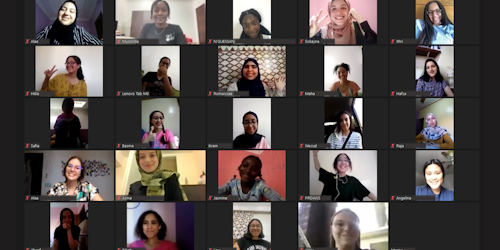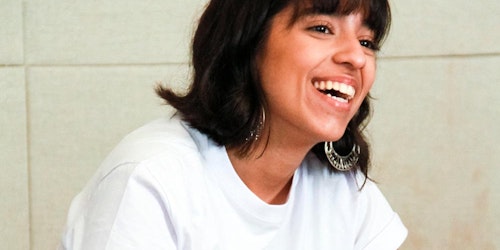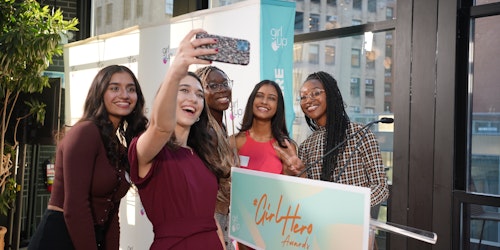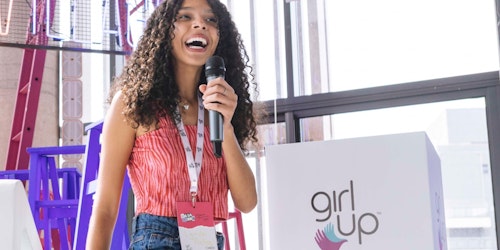A few days ago, I returned from spending almost three weeks in Tallinn, Estonia as a counselor for the 2019 WiSci Estonia Girls STEAM Camp. There are a lot of ways to describe how I feel after WiSci but one particular tech term sticks out: reset.
I first became involved with Girl Up in 2014 when I started a Club at my high school in Arlington, VA. I later became a DMV regional leader and 2016-2017 Teen Advisor. In college, I’ve been able to explore related fields of social impact and but there is nothing quite like Girl Up. The energy of bringing together passionate changemakers in a girl-centered, inclusive, and safe environment can’t be beat.
It was amazing to hear the stories of the 100 girls from Estonia, Latvia, Poland, Georgia, and the United States who participated in the camp. Some had been involved with Girl Up previously, while others hoped to continue their involvement after WiSci. All of them are passionate about using STEM for social good and creating change. They’ve left me with a renewed sense of inspiration. Serving as a counselor at WiSci wasn’t an easy or restful experience, by any means, but it left me feeling reset for the future.
The camp helped the girls explore tech for disabilities, drones, autonomous cars, gender, leadership, and more. The programming leaves them ready to tackle any issue with a combination of technical and soft skills.
One of the most important skills they learned from my point of view is how to reset themselves. Drones and autonomous cars are not generally something you pick up right away, so the girls were tasked with experimenting and troubleshooting. Rarely did everything work perfectly the first time around. WiSci helps instill the value of pressing reset on projects – trying again is no big deal. This willingness to fail is an ability we can all bring to any project.
My camper Maia Arziani from Georgia wrote about her experience troubleshooting in STEAM classes:
Throughout the astonishing 14 days that we spent in the camp, there were times where perseverance and resilience were the only way out. These two traits were especially tested during Google and Intel classes where we had to create our own applications and fly drones. Both of these tasks are exciting and fun, but the processes of building the foundation itself and coding were very laborious. Sometimes the applications were not working in the desired way or the drone was not going in a direction I wanted it to go. This could be frustrating and exhausting, as I had to first determine what was wrong with my code and then try out diverse ways to solve the issue.
Despite the challenges, I focused on my goal to successfully complete the given task as I knew I would learn more throughout this challenging process. At the end of each course I learned how to think of diverse ways to get to the goal, explore new ideas, and keep myself motivated through obstacles. Thus, these aspects made all the hard work worth it because I learned the true value of bouncing back, which at the same time significantly increased my confidence and belief in my skills and abilities. Thanks to this camp experience, not only am I now more confident, but more resilient and perseverant.
Another camper, Nini Skevofilax from the U.S., wrote about improving on her soft skills:
Throughout my experience at WiSci, I was faced with the challenge of networking. Initially I found it difficult to approach the incredible mentors at camp, and comfortably converse with the adults. With the hopes of making a good impression, I repeatedly embarrassed myself in front of software engineers, attorneys, and many other successful people. To my benefit, every struggling conversation I had with a mentor built my confidence in my people skills.
WiSci left all of us refocused on our goals and priorities. I have a few more steps before I’m quite ready for my academic year to restart in a few weeks but I do know one thing: I would press replay on WiSci in a heartbeat.
Becca Bean was a 2019 WiSci Estonia STEAM Camper and is a Teen Advisor Alumna








